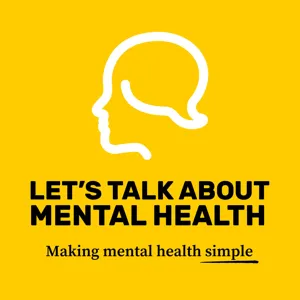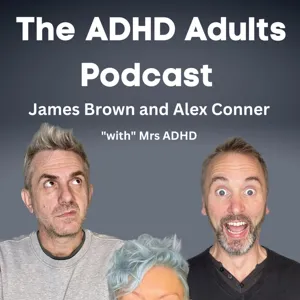Podcast Summary
The importance of professional medical diagnosis: Self-diagnosis based on online research or personal assumptions can be harmful and misleading. Proper medical evaluation by a qualified professional is crucial for accurate diagnoses and avoiding potential harm.
While it's understandable for individuals to seek answers about their health concerns, self-diagnosis based on online research or personal assumptions can be harmful and misleading. The patient's perspective is valuable, but proper medical diagnosis from a qualified professional is crucial, especially when dealing with serious conditions. Self-diagnosis, if not followed up with professional help, can result in incorrect conclusions and potentially harm both the individual and others by spreading incorrect information. The ease of self-diagnosis on the internet and the logical approach people take should not overshadow the importance of a proper medical evaluation. The value that doctors bring to the table is their expertise and ability to provide accurate diagnoses, which goes beyond just identifying symptoms. The caveat is that healthcare can be expensive, but it's important to prioritize seeking professional help over relying solely on self-diagnosis.
Empowerment through self-diagnosis in the digital age: The digital age offers individuals access to reliable information for self-diagnosis, but it's essential to approach it with caution and seek professional help when necessary.
The digital age provides individuals with unprecedented access to high-quality information, enabling them to effectively diagnose themselves based on reputable sources. This self-diagnosis can be a liberating experience for some, offering an explanation for their experiences and helping them understand they are not fundamentally broken. However, it's important to remember that receiving a diagnosis does not entitle individuals to benefits, and it's crucial to approach self-diagnosis with caution and seek professional help when necessary. The abundance of information available online empowers us to better understand ourselves, but it's essential to use this knowledge responsibly.
Self-diagnosis can be misleading and potentially harmful: Seeking professional help for accurate diagnosis and treatment is essential, as self-diagnosis can lead to incorrect assumptions and ineffective solutions.
Self-diagnosis based on a few symptoms can be misleading and potentially harmful, as many conditions share common symptoms. The discussion highlighted how people with mental health diagnoses, such as ADHD, may receive more compassion and understanding, but this doesn't apply to all cases. Making a definitive diagnosis is challenging for doctors, as conditions like hypothyroidism and major depressive disorder share several symptoms. A diagnosis is not the ultimate goal for doctors; instead, they order tests and work towards understanding the root cause of a patient's symptoms to provide accurate treatment. It's essential to remember that self-diagnosis can lead to incorrect assumptions and ineffective solutions, and seeking professional help is always recommended.
Self-diagnosis can be misleading: Consult healthcare professionals for accurate diagnosis, as self-diagnosis can overlook important considerations and lead to misdiagnosis.
Self-diagnosis can be misleading due to the complexities of differential diagnosis. Doctors go through extensive training to ask specific questions and consider various possibilities to arrive at an accurate diagnosis. Symptoms such as difficulty focusing can have multiple causes, including vitamin deficiencies, psychiatric disorders, anxiety, PTSD, and sleep disorders. Without a thorough diagnostic process, individuals may miss important considerations and misdiagnose themselves. For instance, someone struggling with focus might assume they have ADHD, but it could also be due to a vitamin deficiency or anxiety. It's crucial to consult healthcare professionals for proper diagnosis and treatment. In the world of convenience, Drizly offers a solution for alcohol delivery, but when it comes to our health, taking the time to consult a doctor is an essential investment.
Considering various factors beyond ADHD for focus issues: Explore sleep disorders, substance use, and technology habits for focus problems before jumping to an ADHD diagnosis
Focusing on improving focus involves considering various factors beyond just a diagnosis of Attention Deficit Hyperactivity Disorder (ADHD). These factors include sleep disorders, substance use, and technology usage. When someone experiences difficulty focusing, it's essential to undergo a thorough differential diagnosis process. This means considering various possible causes before jumping to a conclusion. For instance, sleep disorders like circadian rhythm disorders can impact focus, making it challenging to concentrate during class hours. Substance use, including caffeine dependence and regular use of drugs like alcohol or marijuana, can also impair focus. Furthermore, technology usage, particularly the consumption of short-form content, can negatively affect attention span. As a good clinician, it's crucial to explore all possible causes before making a diagnosis. This includes asking about sleep patterns, substance use, and technology habits. By taking a comprehensive approach, we can better understand the root causes of focus issues and develop effective strategies to address them.
Doctors can also make mistakes in diagnosing conditions: Patients should clearly communicate symptoms and concerns to doctors, who should consider all possible diagnoses and rule them out systematically. Self-diagnosis should not replace professional help.
While self-diagnosis on the Internet can be misleading due to the lack of consideration of all possible factors, doctors are not immune to making mistakes as well. Doctors can sometimes jump to conclusions too quickly, leading to inappropriate diagnoses or missed opportunities for proper diagnostic workups. This is particularly true for conditions like endometriosis, where symptoms can be dismissed, leading to significant pain and discomfort for patients. Therefore, it's important for patients to communicate clearly with their doctors about their symptoms and concerns, and for doctors to approach each case with an open mind, considering all possible diagnoses and ruling them out systematically. Patients should not rely solely on self-diagnosis but should seek professional help while being advocates for their own health.
Approach online diagnosis with caution: Patients should educate themselves, but rely on doctors for accurate diagnoses. Be cautious about diagnoses in medical records, especially for mental health conditions. Discuss concerns with your doctor first, and seek a second opinion if necessary.
While it's important for patients to educate themselves and formulate hypotheses, self-diagnosis on the Internet should be approached with caution. Your best source of information is still your doctor, and it's crucial for them to listen to your concerns. However, mental health diagnoses can be complex and may accumulate over time, making it essential to be cautious about diagnoses in your medical records. Additionally, life events like pregnancy can trigger symptoms, and a first episode of mania for bipolar disorder is commonly observed postpartum. If you feel your doctor isn't listening, try discussing your concerns with them first. If necessary, consider seeking a second opinion. Remember, your doctor's role is to collaborate with you in your healthcare journey.
Communication is crucial in healthcare and mental health issues: Maintain open communication with healthcare professionals, avoid self-diagnosis, and trust their expertise.
Effective communication is key in addressing concerns with healthcare professionals or mental health issues. The speaker emphasizes the importance of talking to your doctor if you feel unheard or misunderstood. However, they also caution against overgeneralizing and self-diagnosing, especially with the rise of social media and the ongoing destigmatization of mental health. The line between normal behavior and mental health conditions can sometimes be blurred, leading to the pathologization of normal behaviors. It's essential to strike a balance between destigmatizing mental health and avoiding careless self-diagnosis. Instead, trust healthcare professionals to provide accurate diagnoses and focus on maintaining open and honest communication with them.






